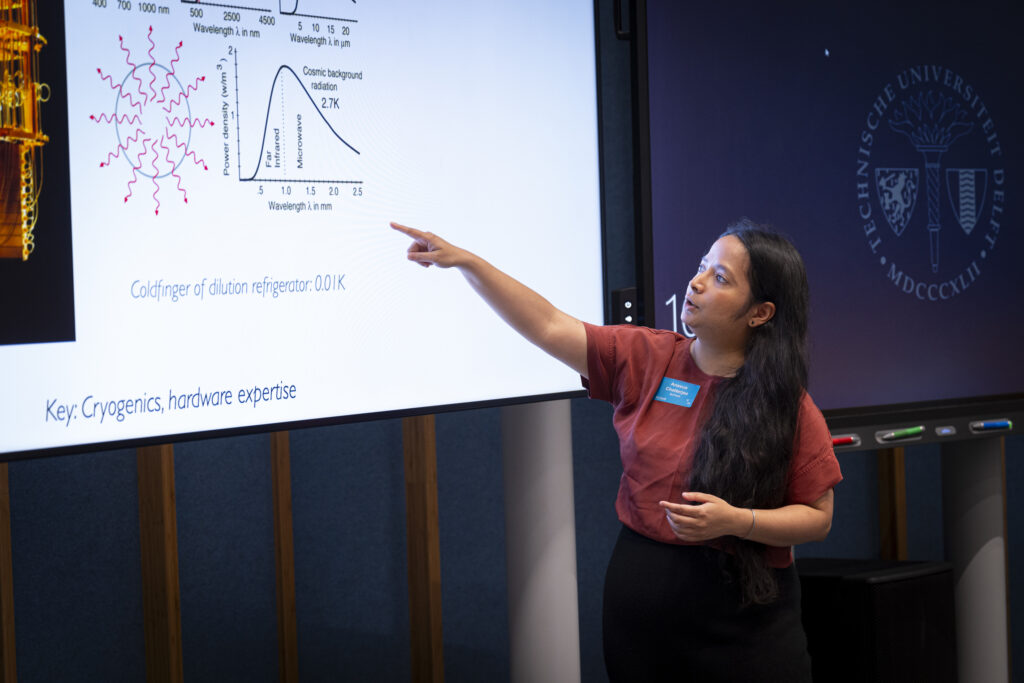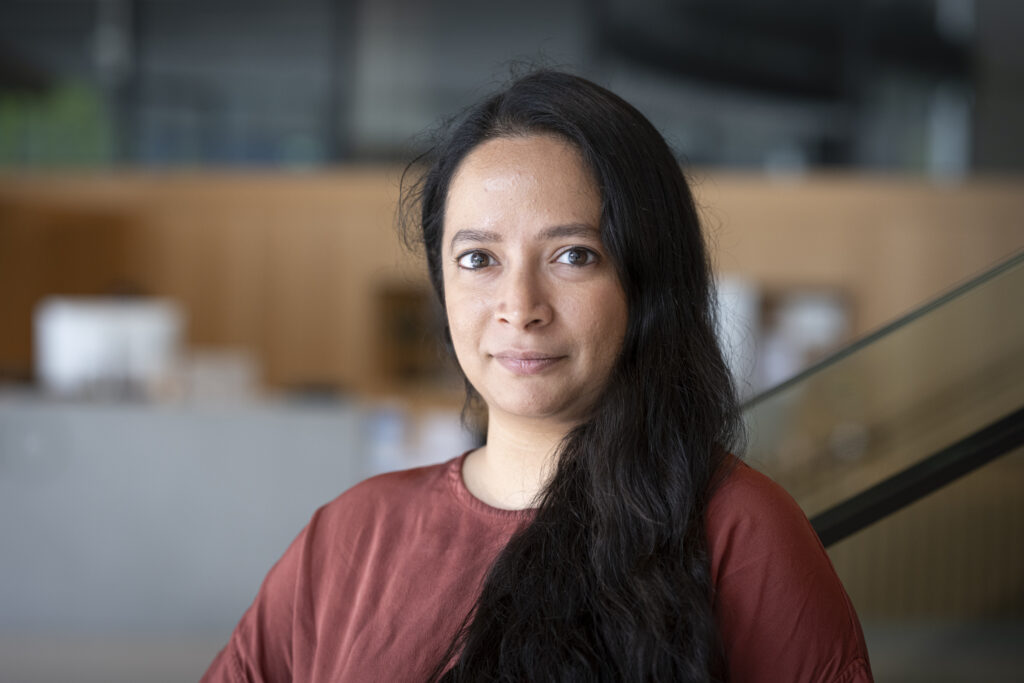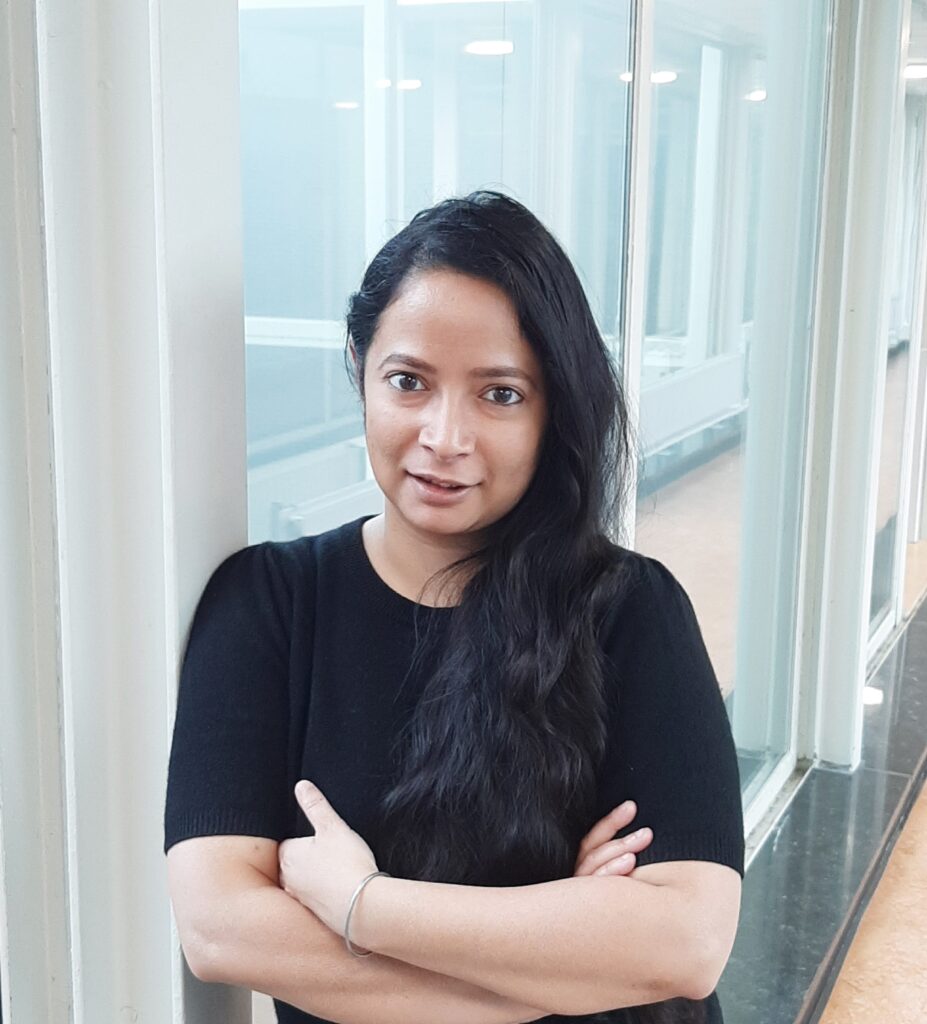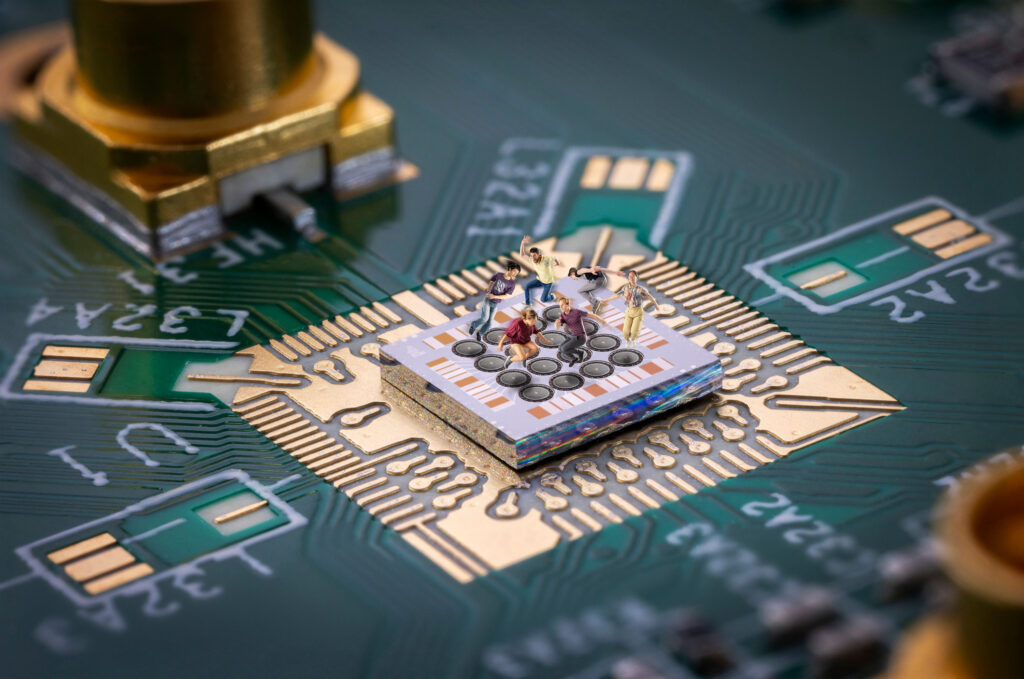18.09.2024Qubit Research
TU Delft Excellence Fund supports Anasua Chatterjee

Dr Anasua Chatterjee receives support from TU Delft Excellence Fund to bring her expertise to TU Delft. The TU Delft Excellence Fund supports TU Delft’s excellence strategy based on the three pillars of Research, Education and Valorisation. The first focus of the Excellence Fund is to attract top international scientists and to help accelerate high potentials.
Dr Chatterjee’s research will focus on semiconductor-superconductor circuits for quantum technologies, addressing critical challenges in scaling quantum control, calibration, and readout in arrays of semiconductor qubits. Her work targets overcoming the “growing pains” that quantum devices experience when transitioning from successful qubit archetypes to more complex qubit arrays. Specifically, she aims to optimize the control of numerous parameters in these systems, using techniques like fast readout and gate control to enhance performance. A key part of her research will combine the strengths of superconducting and semiconducting qubit types, exploring the hybrid physics that underpins them.
A Global Career in Quantum Science
Chatterjee’s move to TU Delft marks a new chapter for her. Having led an experimental group at the Niels Bohr Institute at the University of Copenhagen, she brings a wealth of cross-disciplinary expertise. At Copenhagen, her research focused on building and scaling solid-state quantum hardware using algorithmic techniques, hybrid materials, and highly sensitive readout systems. Her past work includes contributions to the development of superconducting-semiconducting nanowire devices at Princeton University and the study of hybrid quantum-dot dopant devices during her PhD at University College London.

Dr Anasua Chatterjee at the Excellence Fund Annual Founder Event 2024. Photo: Herman Zonderland.
Driving Research Impact at QuTech
Joining QuTech as an Associate Professor in the field of quantum nanoscience, Dr Chatterjee is excited about the potential of quantum research at TU Delft: “The quantum research here is very well positioned and the opportunities for collaboration and funding are immense,” she notes. With her team of PhD researchers and postdocs, she plans to expand TU Delft’s research on hybrid semiconductor-superconductor systems, particularly in developing robust, scalable qubit systems and improving control strategies through machine learning. She aims to bridge gaps in the current research landscape, bringing in knowledge from her previous academic experiences and contributing to the dynamic quantum ecosystem at QuTech.
A vision for quantum’s real-world applications
Chatterjee’s ambition extends beyond the lab. She is keen to push quantum research past theoretical milestones, translating discoveries into practical, real-world solutions. She envisions a future where quantum technology can drive societal change, whether in drug development or solving complex global challenges. By fostering open science and sharing knowledge widely, Chatterjee hopes to demystify quantum science, making its revolutionary potential more accessible and beneficial to all.
TU Delft Excellence Fund supports top scientists
Thanks to the Excellence Fund and the continued support from alumni and other private donors, Chatterjee’s arrival at TU Delft not only strengthens the university’s position as a global leader in quantum research but also promises to enhance the broader academic and entrepreneurial ecosystem. With several PhD and postdoc positions available in her group, her work will continue to attract top talent, paving the way for cutting-edge breakthroughs in the quantum world.
Also starting at TU Delft with the support of the fund is Dr Stefan Witte, who has has been appointed professor of Optics for nanoscale metrology in the Imaging Physics department at TU Delft’s Faculty of Applied Sciences. Previously, Dr Witte led the EUV Generation & Imaging group at ARCNL and served as an associate professor at Vrije Universiteit Amsterdam. His research focuses on visualizing 3D nanostructures, such as those in computer chips, using extreme ultraviolet (EUV) light and advanced techniques like ‘lensless microscopy’. His appointment him to quickly establish a research group and start impactful experiments. Dr Witte sees optics as both a fundamental tool and an enabler for interdisciplinary collaboration across the university.


